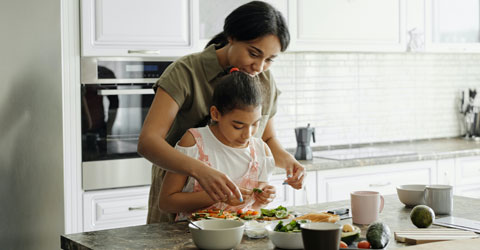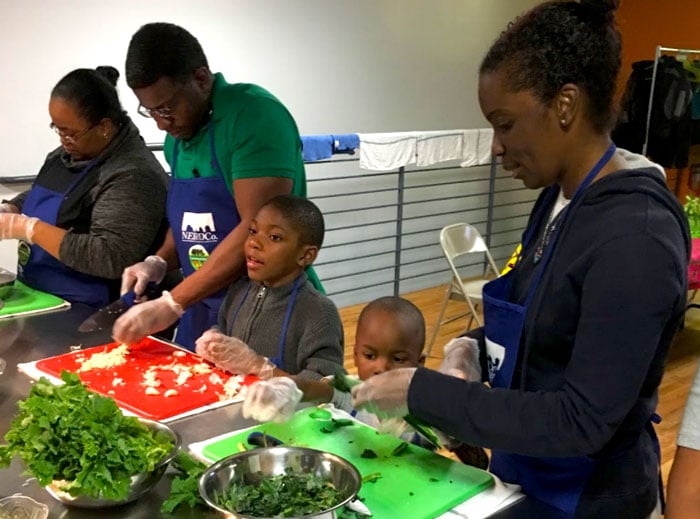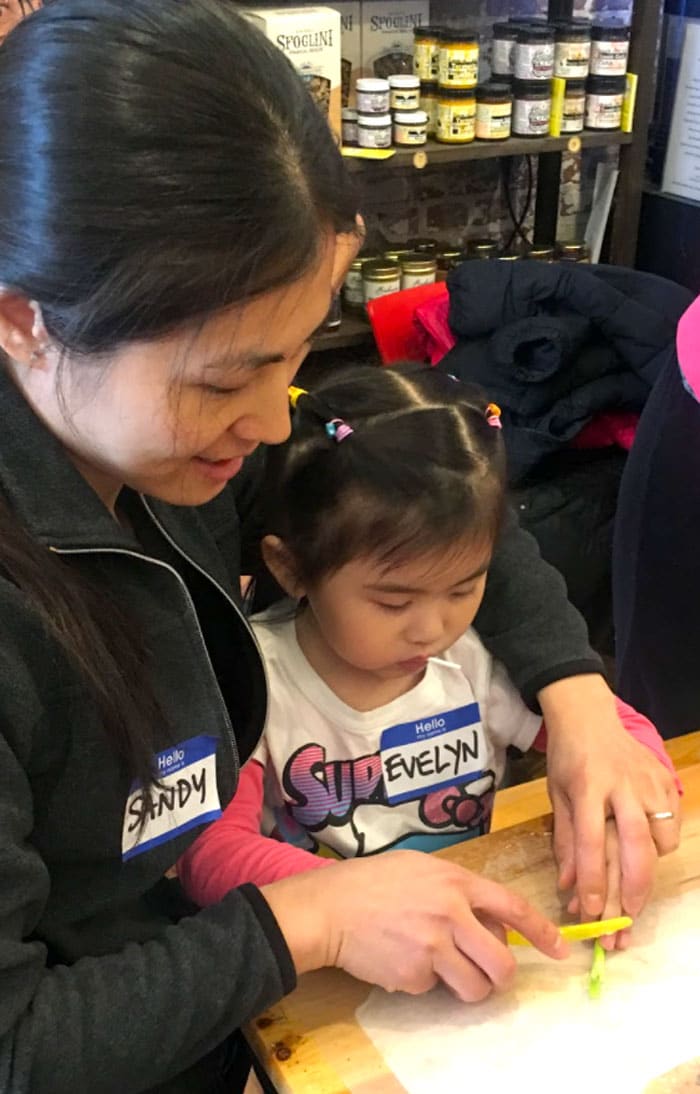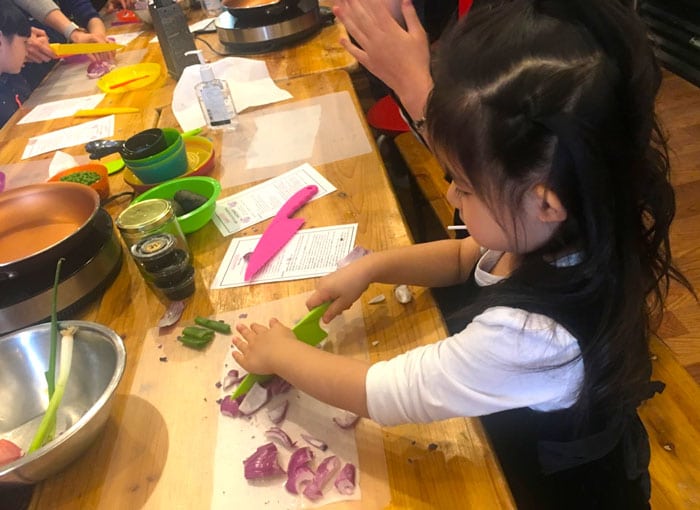

The following is an article from a Community Grant recipient.
I founded FamilyCook Productions over 25 years ago when I was a food journalist and restaurant consultant in New York City. I had gone through a divorce and was raising my two young sons on my own, trying to find the right balance between working all day and the importance of mealtime.
The breakthrough came when I got my sons involved in preparing food. When my youngest was 2 years old, I set him at the kitchen table and gave him some green beans to snap. It didn’t matter how good of a job he did, he was proud to be helping, and my anxiety about when dinner would be ready vanished. So I got his brother to help, and it was amazing to see the new, healthy foods they were now willing to try.
I was encouraged to bring my “family cooking” concept to schools by Dr. Antonia Demas who did her doctoral thesis at Cornell University on an elementary cooking curriculum that integrated academic disciplines. I started with my son’s school and family classes and published my first book Cooking Time Is Family Time in 1999. In the decades since, our nutrition education curriculum for all ages has spread to hundreds of schools and community organizations in over 30 states, influencing over 350,000 youth and adults nationwide.

It became a priority to me to build the evidence base about changing behaviors from an unhealthy diet to a plant forward one.
We collaborated with researchers at the Einstein College of Medicine and Columbia University, among others, to better understand what participant behavior change was being motivated by. Over 20 years, we developed many different strategies to open people up to plant-based recipes, and in 2018, we collaborated with Columbia University to conduct a study that would codify essential experiences for class participants to make behavior changes. This resulted in a framework published in a peer review journal that identified “10 Experiential Drivers of Behavior Change.”

In recent years, we’ve joined the Teaching Kitchen Collaborative to collaborate with hospitals and clinicians to bring our strategies to their patients. In addition to Boston Medical Center, which has collaborated with our Teen Battle Chef program, our newest patient venture is “Deliciously Healthy” with Gouverneur Hospital in New York. The project’s aim is to demonstrate:

The program addresses all 10 experiential drivers of behavior change. Currently, we’re conducting sessions remotely. Some of the highlights of how participants are responding include:
Thanks to a grant from the T. Colin Campbell Center for Nutrition Studies, we are able to provide cooking tools to participants and translate recipes as needed into Spanish and Chinese. We will be following up with each cohort at 3-month intervals for up to one year to understand the impact of the classes and whether impacts have been sustained.
The T. Colin Campbell Center for Nutrition Studies (CNS) is committed to increasing awareness of the extraordinary impact that food has on the health of our bodies, our communities, and our planet. In support of this commitment, CNS has created a Community Grant initiative to empower sustainable food-based initiatives around the world by providing grants to enable innovative start-ups and to propel the growth of existing initiatives. Please consider making a donation to this great cause. 100% of your donation will go to support initiatives like the one you just read about in this article.
Learn more about our Community Grant program:
Copyright 2024 Center for Nutrition Studies. All rights reserved.